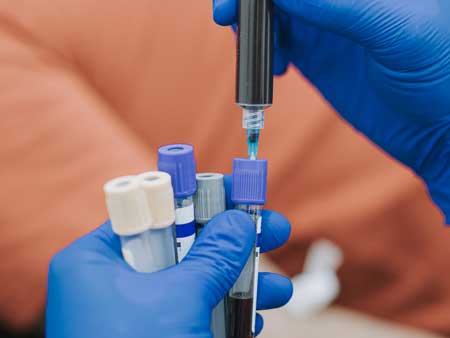 Anyone who has had a traditional screening for colon cancer knows the stress involved in not only doing the stool test right, but having to wait for the results to come in and, if it’s positive for blood, wondering if you somehow messed it all up on your end.
Anyone who has had a traditional screening for colon cancer knows the stress involved in not only doing the stool test right, but having to wait for the results to come in and, if it’s positive for blood, wondering if you somehow messed it all up on your end.
Researchers at the Fred Hutchinson Cancer Center in Seattle have devised a better way to screen for colorectal cancer—a simple blood test that can be done along with the rest of your labs during an annual health checkup.
“We have a lot of people who are dying from a preventable cancer,” Dr. William Grady, Medical Director at The Hutch, recently told reporters. “And the reason is they’re not doing colon cancer screenings. This is a real opportunity to improve that and prevent those deaths. That’s why I get excited about it.”
Following clinical tests on nearly 8,000 patients between the ages of 45 and 84, the blood test detected colorectal cancer 83% of the time. This is about equal or slightly better than the standard stool test.
Neither test replaces a colonoscopy, of course, which can identify and remove precancerous lesions the non-invasive tests are designed to detect. Given that colon cancer is one of the most curable forms of cancer when it is detected early, researchers hope that a simple blood test will encourage more people to get screened early and often.
Colorectal cancer is the third-most diagnosed cancer and the second leading cause of cancer-related deaths in the U.S. If caught early, the survival rate is 90%. Even if the cancer has spread elsewhere, the five-year survival rate remains nearly 75%.
Where colon cancer was once considered a disease that affects older Americans, patients under 55 now account for 20% of all cases. That is double the rate reported in 1995, even though detection and treatment methods have greatly improved.
Next-generation sequencing is at the heart of the new test. Over the last 20 years, sequencing has advanced to the point that the cancer’s DNA can be detected in the blood. The hope is that this new test will lead to other blood tests that can detect other forms of cancer, from lung to breast.
The blood test is awaiting approval by the Food and Drug Administration and researchers hope they will receive approval by the end of 2024.